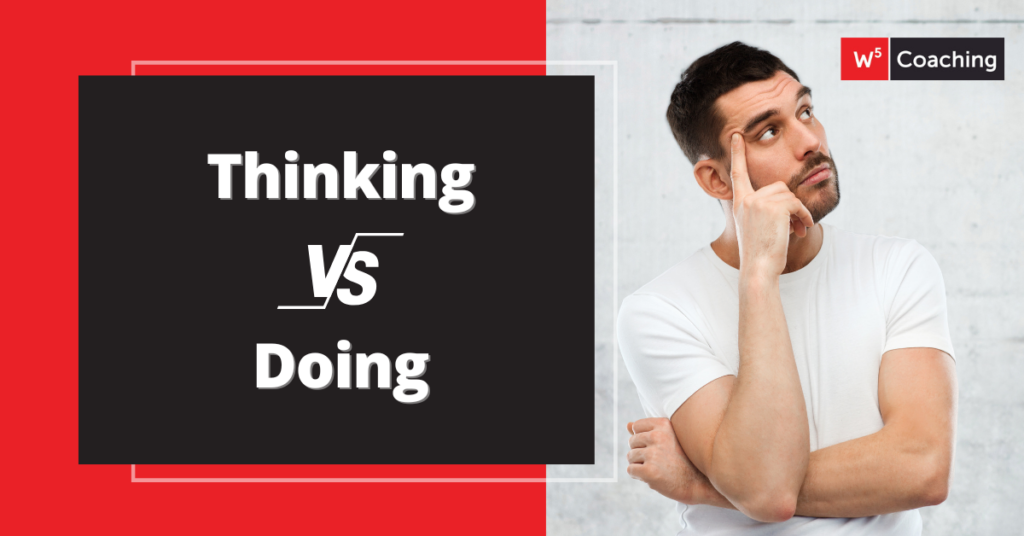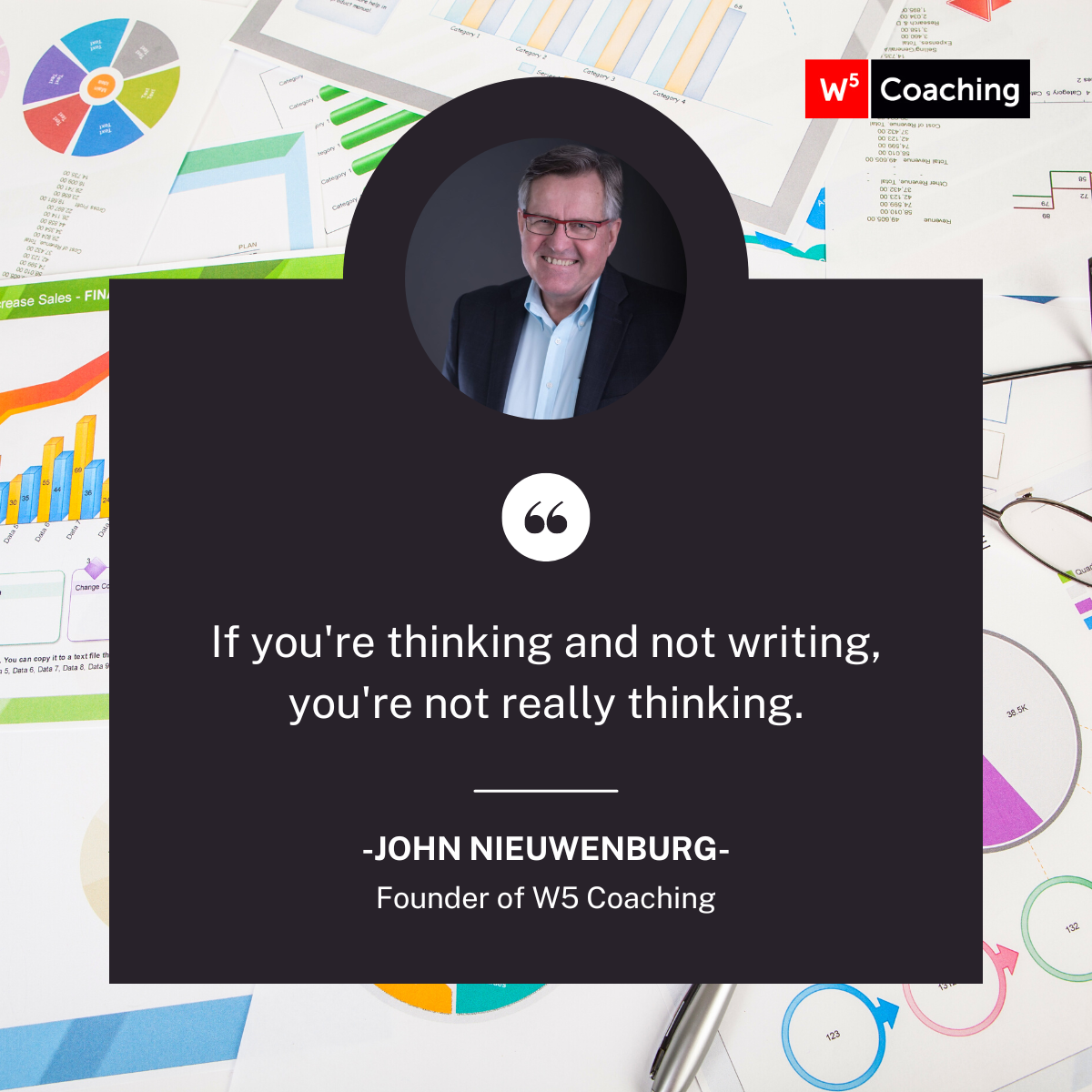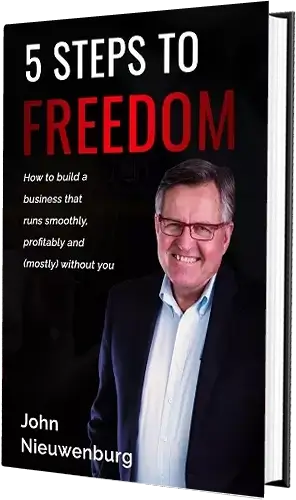4 Strategies to Overcome Overthinking

There is a difference between moving fast and rushing. You can move fast and be thoughtful. When you rush, you sacrifice thoughtfulness. Conversely, when you are thoughtful but not moving fast, you are overthinking it. Procrastination in disguise. Don’t rush, but don’t wait.
~ James Clear
As a business owner, you need to strike a balance between thinking and doing.
And by balance, I mean a lot more DOING than thinking! 😉
It’s been my experience that most small business owners are over-thinkers.
Do any of the following sound familiar?
8 signs you may be overthinking things
- Procrastination – especially delaying making important decisions.
- Analysis Paralysis – spending time analyzing every possible scenario and outcome, then struggling to take any action.
- Overly Detailed Planning – especially getting caught up in minor details that may not significantly impact success.
- Second-Guessing – doubting decisions and constantly questioning whether you are making the right choices.
- Lack of Delegation or Micromanagement – springing from a fear that no one else will do the job as well as you would.
- Difficulty Letting Go – replaying past mistakes or setbacks in your mind and dwelling on what could have been done differently.
- Perfectionism – setting unrealistic expectations for yourself and your team.
- Mental Exhaustion and Burnout – from the energy drain of constant rumination and analysis.
Behind overthinking are fear, uncertainty, and doubt.
Here are 4 tips to help you to stop them in their tracks.
1. Use affirmations to reprogram the voice in your head
Jon Acuff wrote a book called Soundtracks.
That’s his name for the thoughts that run over and over in our heads. Here’s how he describes it:
When we don’t control our thoughts, our thoughts control us. If our days are full of broken soundtracks, thoughts are our worst enemy, holding us back from the things we really want. But the solution to overthinking isn’t to stop thinking. The solution is running our brains with better soundtracks. Once we learn how to choose our soundtracks, thoughts become our best friend, propelling us toward our goals.
What he calls “broken soundtracks” are patterns of negative thought: the voice in your head that tells you you’re not good enough or that “this will never work.”
This is why I recommend that my clients develop and use affirmations.
Affirmations are the counterweight to negative self-talk.
If you don’t have this counterweight, your thoughts take the shape of a vicious circle that spirals downward.
When you use affirmations, you develop a virtuous spiral. This has the same characteristics of accelerating and compounding, but it spirals upwards, driving you towards your goals.
2. Do some planning to combat uncertainty
 The goal isn’t to stop thinking entirely, it’s to stop unproductive thinking.
The goal isn’t to stop thinking entirely, it’s to stop unproductive thinking.
If you’re going to think – take some time to really THINK.
Once a year, create a solid annual plan.
Then take an hour or two every quarter to review it and update it.
Despite what over-thinkers want to believe, you cannot plan for every possible contingency in advance, but the act of planning can get your thoughts straight and overcome some of the uncertainty.
3. Beware of the dip and get some support to work your way through it
Introducing change can sometimes cause things to seem worse for a while.
You’ll be moving along at a certain pace in your business, then you make an investment of time/energy/money to improve your strategy.
And you don’t see an immediate result. Things may even dip for a while.
This is a scary place for over-thinkers to be and it’s really easy to slip into second-guessing your decision.
If you’re in this situation, I highly recommend reading Seth Godin’s little book, The Dip.
This is also an excellent time to hire a business coach. Getting some experienced outside perspective can help you decide whether to stick with the new strategy or make a pivot – without overthinking!
4. Give yourself permission to simply get started
A lot of people want things to be perfect before they begin. They want to understand all the possible things that could happen so they can be prepared.
The truth is that you won’t really know whether something is the right thing to do until you start doing it.
You need feedback and experience. You need to test and measure. And you can only do that through taking action.
To use another Seth Godin term, you need to ship.
Put a minimum viable product into the world and see what happens. You’ll get feedback from the marketplace to help you make it better.
As a small business owner, it’s crucial to find a balance between thinking and doing
Overthinking can hinder progress and lead to various signs such as procrastination, analysis paralysis, second-guessing, and perfectionism.
To overcome overthinking, consider using affirmations to counter negative self-talk, engage in productive planning to combat uncertainty, be aware of the dip, and give yourself permission to simply get started without aiming for perfection.
By taking action and learning from the feedback you receive, you can make continuous improvements and drive your business forward.
If you’re struggling with overthinking – or you’d simply like to fast track your way to success, I invite you to book 15 minutes on my calendar to talk about business coaching: book a call with John.
Clicking that link would be an excellent exercise to overcome over-thinking 😉

Build a Self-Managing Company
How to build a business that runs smoothly, profitably, and (mostly) without you.
Feeling stressed out and overwhelmed with a business that is taking all your time - and not giving you enough in return?
Are you finding it challenging to hire the right team (and get them to do the right things)?
I wrote this little guide for you!
Enter your details below to receive your free copy!
